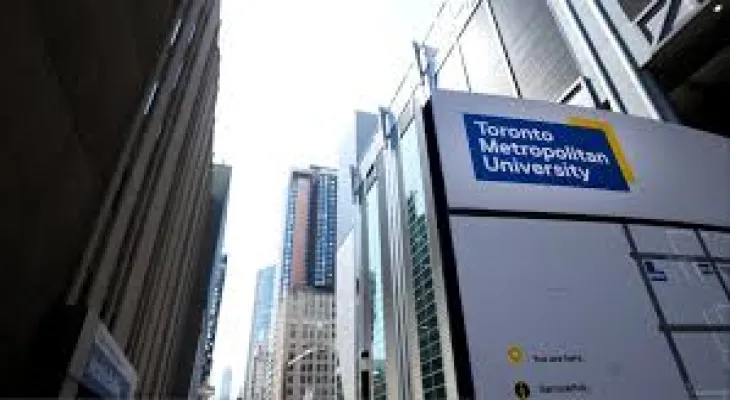Search here
Newspaper
Search here

Arab Canada News
News

Published: June 9, 2024
As law professors, we teach our students how to defend themselves and use their skills to do so on behalf of others who cannot. We were actually drawn to the law in the first place because we wanted to be effective advocates for others.
The same is likely true for more than 70 law students at the Lincoln Alexander School of Law at Toronto Metropolitan University, who learned a lesson about the costs of advocacy, and after defending Palestinian human rights, faced the risk of expulsion and the end of their legal careers.
The students’ crime was signing a letter to the law school, leaked on October 20, highlighting Israeli violations of international law, including apartheid, as the necessary context for Hamas's attacks on Israel on October 7.
While the letter rightly described the killing of civilians as “war crimes,” it did not specifically mention the victims or Israeli hostages and vaguely endorsed “all forms of Palestinian resistance.” Many people found this insensitive given the pain felt by many, including Toronto Metropolitan TMU students, as a result of the Hamas attack.
At the same time, what many others found insensitive was the lack of any meaningful acknowledgment by TMU of the rising death toll in Gaza when Israel unleashed its disproportionate bombing campaign.
On October 23, the law school issued a statement that unjustly defamed the students. The administration claimed that it “unequivocally condemns the antisemitic and intolerant sentiments expressed” in the students' letter.
The university claimed it was “committed to upholding our values of inclusivity, dignity, and respect,” but did not provide protection for those values to include the signatories of the open letter. This example of hypocrisy was yet another instance of excluding Palestine from freedom of expression.
The signatories were promptly blacklisted by several law firms in Toronto. The Attorney General of Ontario took unprecedented steps to scrutinize TMU students. Prospective staff were asked to confirm in writing that they did not support the open letter, under the threat of rescinding job offers or expulsion. The judiciary is alleged to have participated in this retaliatory scheme.
A group of 23 prominent lawyers falsely claimed that the students' open letter was a “hate-filled incitement to violence against Israel and the Jewish people.” This group included a former appeal judge, members of the legal community, heads of legal organizations, adjunct professors at law school, and even a columnist for the National Post who used his column to further vilify the students.
The group of prominent lawyers issued a stark warning: if the law school fails to impose discipline, the “professional employment” required as part of the TMU curriculum for these students may not be available from the legal community.
TMU quickly announced that it was investigating the students and appointed retired Nova Scotia Chief Justice J. Michael MacDonald as an external reviewer.
Many students who signed the letter faced harassment, hatred, and even death threats online. As a result, they removed the letter from public view.
Last week, Justice MacDonald concluded that the signatories did not violate TMU’s code of conduct. He found the letter “flawed in many respects,” noting a significant gap between the students' true intentions of Palestinian solidarity and how the letter was understood. Ultimately, he concluded that it was not antisemitic, noting it clearly discussed Israeli policies and actions, not the Jewish people or Judaism.
The 169-page report pointed out that although the letter's content was offensive to some, it was not intended to be so, and was, nonetheless, a protected exercise of free speech, vital in academic settings.
Prominent lawyers who continued to incite retaliatory actions against the letter signatories should be reminded of their professional duty to be honorable, civil, and non-discriminatory. TMU students are at the beginning of their careers and need guidance. Many have no connections in professional networks. They do not deserve for some of the more experienced and connected members of Ontario’s legal community to unite their efforts to destroy their lives.
Justice MacDonald noted that the group of lawyers did the same thing they accused the students of doing, such as speaking harshly, rushing to judgment, and failing to acknowledge opposing viewpoints. These prominent lawyers “spoke about the importance of civility and respectful dialogue, without extending feelings of empathy to the concerned students.”
It’s time for these prominent lawyers to make amends. They should withdraw their letter and apologize to the students.
Faisal Kooti is a lawyer and a faculty member at Rutgers University’s Center for Security, Race, and Rights.
Faisal Bahabha is an associate professor at Osgoode Hall Law School.
Alex Neve is a senior fellow at the University of Ottawa's Graduate School of Public and International Affairs.
Comments